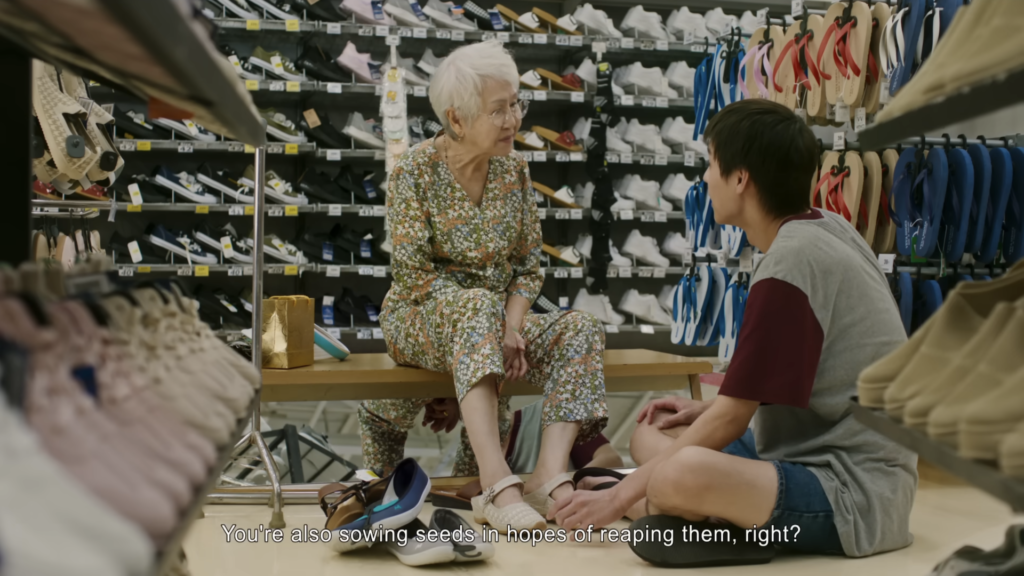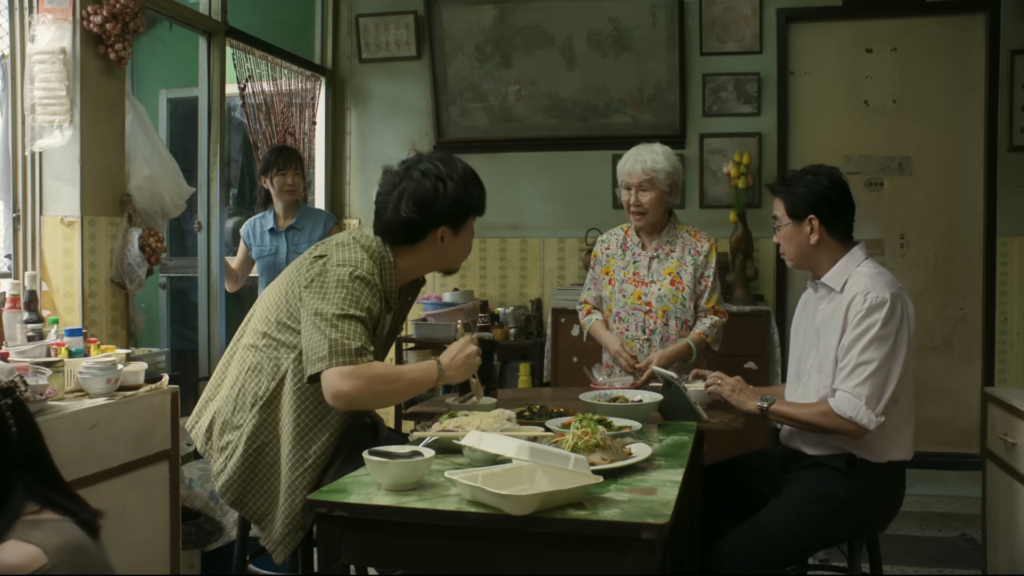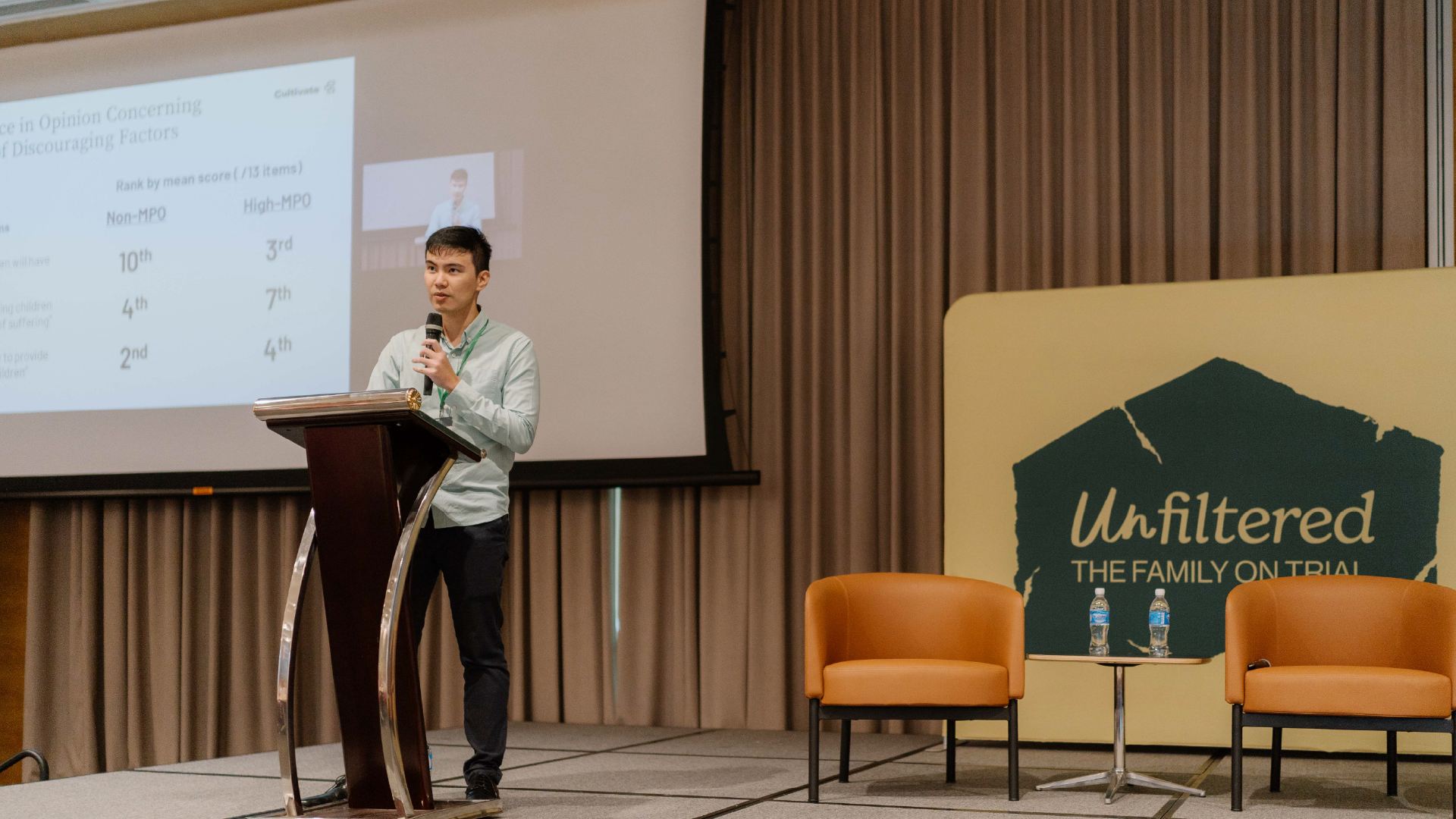Title: How to Make Millions Before Grandma Dies
Year: 2024
Director: Pat Boonnitipat
Origin: Thailand
Our rating (out of 5 stars): 4.5 ★
“I didn’t cry but I went to visit my grandma after that.” – E found herself in the shoes of the main lead, having grown up with her grandmother up till she was 12.
“I regretted that at 15, I felt like my grandma was just taking up space in my house.” – D had spent time with his grandma after her cancer diagnosis but regrets that he did not have the transformative experience that the film’s protagonist had.
These were some quick reflections that our team had post-tearjerker Thai film How to Make Millions Before Grandma Dies (original title Lahn Ma, which means “Grandma’s Grandchild”). We checked it out to see if it lived up to the Tiktok hype.
Directed by Pat Boonnitipat in his debut feature, the film topped the local box office over the weekend of 6 to 9 June, and has become the highest-earning Thai movie in Singapore. It has also sparked a TikTok trend where people have been posting their teary-eyed responses to the film.
The film is about a young man named M, who moves in to live with his grandmother Amah after having seen how his cousin Mui inherited millions from their late grandfather after taking care of the old man full-time in his last days.
Inspired by such “easy work” that potentially promises such great monetary rewards, M tries his best to cosy up to Amah after her cancer diagnosis. Instead, he learns some important lessons about family and relationships.
(Note: Mild spoilers ahead.)
Our Take
Through the lens of an ethnically Chinese Thai family, How to Make Millions Before Grandma Dies provides a striking yet subtle commentary on our attitudes towards the family members in our lives, especially the elderly. How would we treat people who have no further “use”, as it were, to society? What of the aging and sickly grandmother, with nearly nothing left to her name?
The film takes the almost eternal tension in familial relationships – with the transactional, mercenary, rewards-based view, where most acts carry a price-tag on one end, and the other end is where love is freely given and cannot be quantified – and moves quite seamlessly between these two ends, showing us how each plays out in a poignant reality. We are led to question and reflect on our own familial ties and how these tensions play out.

In one scene fleshing out the idea that there must be some kind of monetary reward in return for the demonstration of love, care and concern, M and Amah quip about how someone would only shower an old and dying person with much attention because they were “sowing seeds in hope of reaping them”, like a fruit to be harvested in its time. Another dig is made through a reference to OnlyFans, the subscription-based social media platform which has become well-known as a platform for paid sexual content.
The film also upends this view of relationships through Amah’s baffling decisions – such as by leaving her house to her gambler-son – to show the ends of her love for her children. A clearheaded woman, with knowledge of her children’s shortcomings and wrongdoing, yet still desiring to love them and be loved by them. Even then, Amah herself does not embody this self-sacrificial attitude perfectly, as shown from one uncomfortable scene where she and her wealthy elder brother speak about their parents’ inheritance.
This realism is where the film hits home. It presents – in a matter-of-fact manner – the struggles of the elderly, including their challenges of loneliness, sickness, helplessness and various personal desires. And it does so in a way that takes you on a ride through your own familial love, with all its joys and entanglements.
We laughed and cried along with the various family members as we journeyed with them through Amah’s last days. Although we must be honest that we found the film a little less emotional than the numerous TikTok videos of people “crying buckets” have set it out to be, we also loved that, again, in a very real way, the film never really pointed out a “right” or “wrong” way. It was often unclear whether the actions of individuals were motivated by genuine love or in pursuit of a monetary reward. It invited us to decide on our own, whether each character’s actions were good or bad.

Food for Thought
We also wondered about the power behind the film. Why did it become a sobfest in Singapore and the region? It wasn’t that such issues hadn’t been covered onscreen before, or that we weren’t aware of these concepts.
But something about the show – perhaps it was the young age of the protagonist, representing the deep hopes, insecurities, fears, and love of our younger generation, vis-a-vis the Silent/Pioneer Generation, who very often only show us a small part of their whole selves. Could it also have struck at our dissatisfaction with how materialistic we have become? Perhaps it hit too close to home – our literal home – reminding us of our own painful family dynamics that we have holed up and become numb to? Is Singapore coming to a reckoning of the materialism that was built on the back-breaking work of the previous generation whom we have left behind?
There was a mass release of the layers of emotions we have towards our grandparents – generationally – partially understanding the harsh times they live through, feeling guilty about taking their familial contributions for granted, and for having no desire to “pay them back”, all while enjoying the fruits of their labour. Amah represents her generation – not fully understood or appreciated, standing at the periphery of society, waiting to leave it. And M is us, not understanding and appreciating, only learning to love and be loved when we walk towards them, and stay for awhile.
It also channelled some of our unsaid emotions towards our parents and their parents – a deep gratitude and love, mixed with lack of understanding, sometimes even anger, with the added complexity of the non-verbal communication that most Asian households are used to. Yes, some might say that open communication could have allowed for each family member to better understand each others’ actions and intentions, yet paradoxically, most of what is done cannot be fully put in words.
Additionally, when confronted with death, we are made to question our priorities, motivations and what truly matters in life. The whole experience left us questioning:
- Have we become too caught up in the dream of material comfort and riches, and as a result
our family ties have become strained? - What would it be like to grow old? How would our own children treat us when we are
older? - What is our attitude towards our families, the old and the needy? How should we live
differently? - How do we view our families and other people? Do we see them through materialistic
lenses as economic digits, or as persons worthy of love? Do we treat people well only
because of a material reward at the end, or because we love them as fellow human beings?
And just like the movie, there are no easy answers, just questions to guide us along on this journey
with our families.


